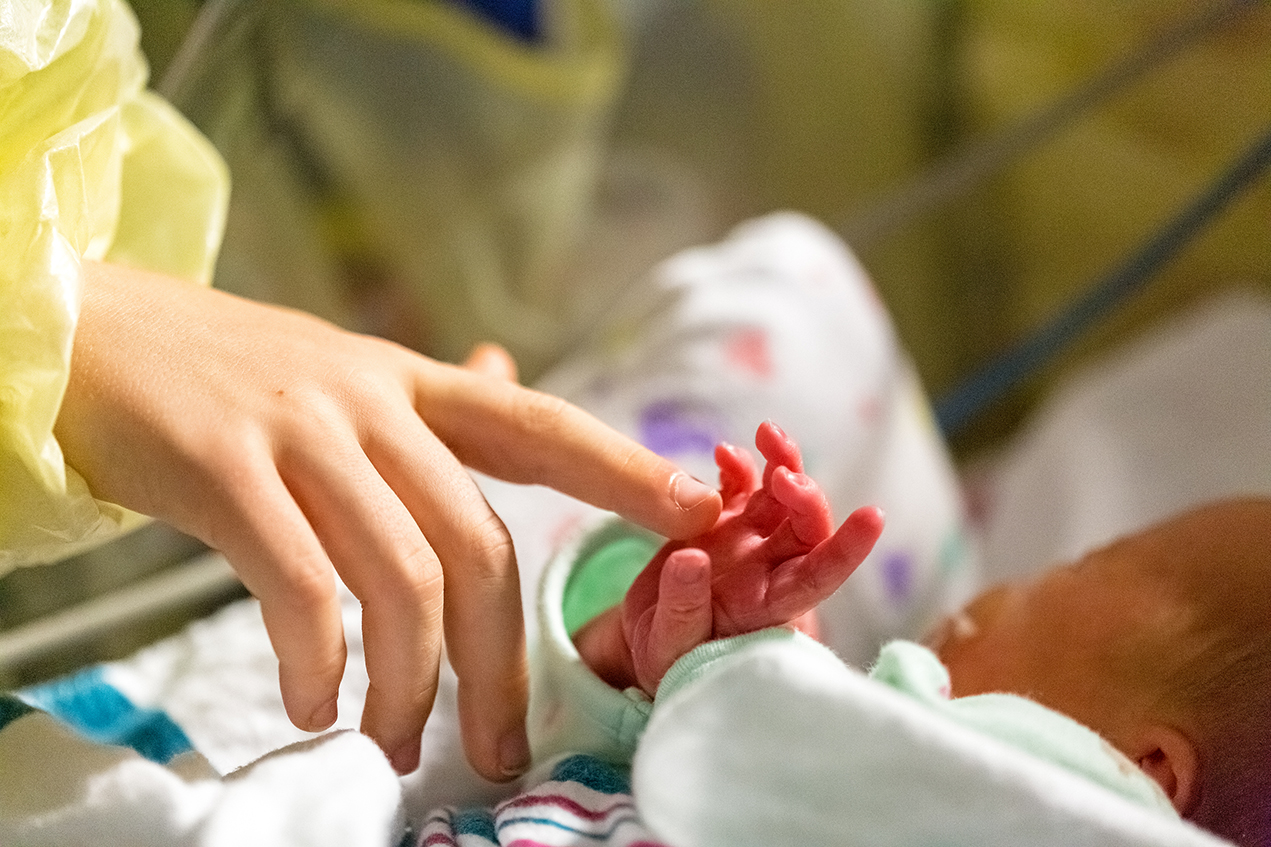This month, the Supporting and Enhancing NICU Sensory Experiences, 2nd edition (SENSE II) program rolls out to neonatal intensive care units (NICUs) at hospitals across the world. SENSE II is an anticipated update of the original SENSE program, which is a comprehensive approach to ensuring high-risk infants receive positive sensory experiences during their stay in the NICU. The update builds upon the program’s 2017 foundations, and the revision ensures that the program remains rooted in current evidence.
Both versions of the program, co-developed by occupational therapist Bobbi Pineda, PhD, OTR/L, CNT, aim to educate families so they can provide infants with positive sensory exposures each day.
“High-risk infants in the NICU are exposed to noxious and procedural touch as part of necessary medical care,” said Pineda, who is also an assistant professor at the USC Chan Division of Occupational Science and Occupational Therapy. “However, there is a large body of research identifying the importance of parent participation at the bedside and the importance of positive sensory exposures. Appropriate types and amounts of positive sensory exposures can improve brain development and optimize neurodevelopmental outcomes, while also boosting the parents’ participation and confidence in their role.”
To continue reading this story, click here.


